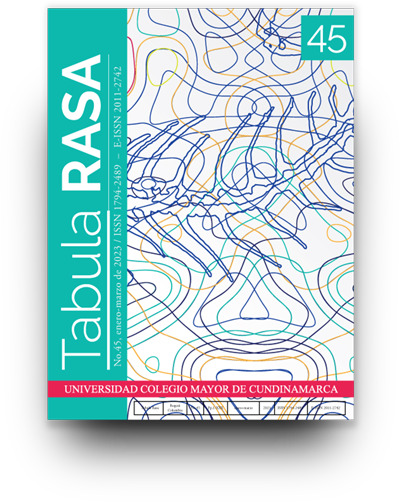White Children from Black Gods. Whiteness, Blackness, and Popular Religiosity in Cuba
Los hijos blancos de los dioses negros. Blanquitud, negritud y religiosidad popular en Cuba
Show authors biography
This article delves into the intersections between ethnoraciality —with whiteness and Afro-Cuban as key analytical categories— and popular ethnoreligiosity in Cuba, as referred to the magical-religious practices of African origin, highlighting santeria or the rule of Ocha. To do this, we draw from an analysis of the Afro-Cuban as a theoretical and cultural object built by white intellectual elites, where whiteness narratives operate as an exclusive definition of the Black and its role in Cubanness. From this background, we will approach the phenomenon of increasing affiliation to Afro-Cuban religions by people within and outside of the island who see themselves as white. How is whiteness built and situated in a context of religious practices that have historically been related to Black communities? We believe the promotion of the once known «religions of poor Black people», with an emphasis on santeria or the rule of Ocha-Ifa, as a new banner of Cubanness, calls for an approach centered in the individuals that guarantee the survival of those practices.
Article visits 339 | PDF visits 100
Downloads
- Cabrera, L. (2017). El monte. Habana Vieja: Editorial Letras Cubanas. Castellanos, J. (2003). Pioneros de la etnografía afrocubana. Miami: Universal. Castellanos, J. & Castellanos, I. (1988). Cultura afrocubana 1. El negro en Cuba 1492- 1844. Miami: Ediciones Universal.
- De la Fuente, A. (2008). The new Afro-Cuban Movement and the debate on race in contemporary Cuba. Journal of Latin American Studies, 40(14), 697-720.
- Du Bois, W. E. B. (1989[1903]). The souls of Black folk. New York: Penguin Books. Echeverría, B. (2011). Crítica a la modernidad capitalista. La Paz: Vicepresidencia del Estado Plurinacional de Bolivia
- Fitó, M. (2009). Las religiones y culturas de origen africano (Brasil, Cuba, Venezuela) a prueba de políticas turísticas y rivalidades ¿Un desarrollo sostenible? Études caribéennes, 13-14. https://journals.openedition.org/etudescaribeennes/3852
- James Figuerola, J. (2008). La brujería cubana: el palo monte: aproximación al pensamiento abstracto de la cubanía. Santiago de Cuba: Editorial Oriente.
- Lachatañeré, R. (2001). El sistema religioso de los afrocubanos. La Habana: Editorial Ciencias Sociales.
- Lachatañeré, R. (1993[1938 ]). Oh, Mío Yemayá! Cuentos y cantos negros. La Habana: Editorial de Ciencias Sociales.
- Maldonado-Torres, N. (2007). On the coloniality of being. Cultural Studies, 21, 2-3, 240-270. https://doi.org/10.1080/09502380601162548
- Mignolo, W. (2003). Historias locales/diseños globales. Colonialidad, conocimientos subalternos y pensamiento fronterizo. Madrid: Akal.
- Ortiz, F. (2001[1906]). Los negros brujos. La Habana: Editorial Ciencias Sociales. Ortiz, F. (1996[1916]). Los negros esclavos. La Habana: Editorial Ciencias Sociales.
- Ortiz, F. (1993[1940]). Contrapunteo cubano del tabaco y el azúcar. La Habana: Editorial de Ciencias Sociales, (1983).
- Ortiz, F. (1993[1949]). Los factores humanos de la cubanidad, en Etnia y sociedad. La Habana: Editorial de Ciencias Sociales.
- Ortiz, F. (1975[1946]). El engaño de las razas. La Habana: Editorial Ciencias Sociales. Quijano, A. (1992). Colonialidad y modernidad/racionalidad. Perú Indígena, 13(29), 11-20.
- Rodríguez-Mangual, E. (2004). Lydia Cabrera and the Construction of an Afro-Cuban Cultural Identity. Chapel Hill: University of North Carolina Press.
- Rodríguez, P., Carrazana, L. & García Dally, A. (2011). Relaciones raciales en la esfera laboral. En: N. Nuñez González et al. Las relaciones raciales en Cuba: estudios contemporáneos (pp.45-84). La Habana: Fundación Fernando Ortiz.
- Romay, Z. (2014). El elogio de la altea o las paradojas de la racialidad. La Habana: Fondo Editorial Casa de las Américas.
- Torres Cuevas, E. (2006). En busca de la cubanidad. La Habana: Editorial de Ciencias Sociales.




